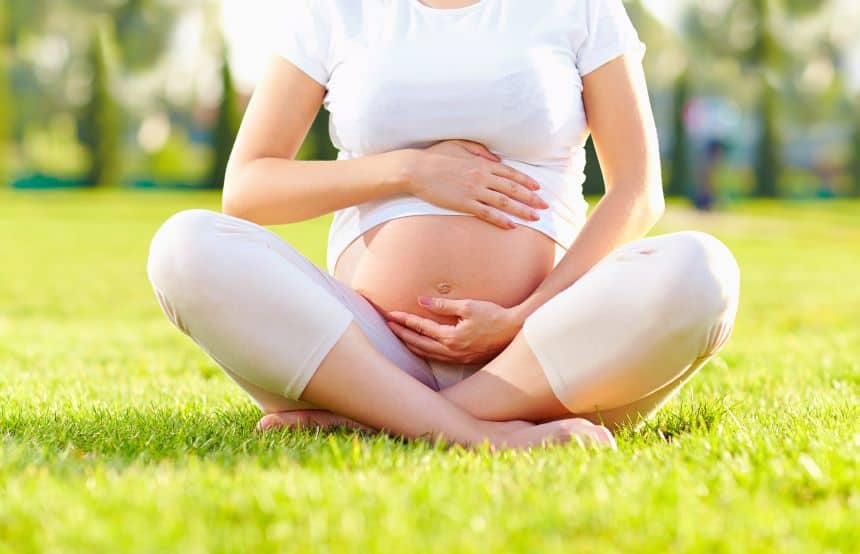
Vitamin D is often an overlooked nutrient, despite playing crucial roles in our health. Many people wonder what does vitamin D help with beyond basic bone health. Beyond helping absorb calcium and phosphorus for strong bones and teeth, vitamin D also affects reproductive health by improving egg and sperm quality, thereby increasing conception chances. Understanding vitamin D benefits is essential for pregnant women, as adequate intake supports the reproductive system and helps ensure a healthy, complete pregnancy.
The Benefits of Vitamin D: What You Should Know
When considering what does vitamin D help with, the vitamin D benefits extend across numerous health areas, each important for overall wellness and preparing your body for conception:
- Bone and Teeth Health: Among the primary vitamin D benefits is enhancing calcium absorption efficiency, strengthening bones and preventing osteoporosis. This foundation is especially crucial for women preparing for pregnancy.
- Immune System Support: Vitamin D strengthens the body’s defense system, improving the ability to fight against infections while maintaining immune balance and preventing excessive allergic reactions.
- Reproductive Health: This lesser-known benefit among vitamins for pregnant women shows that vitamin D can improve egg and sperm quality, helping maintain hormonal balance in both men and women, ultimately increasing successful conception rates.
- Cardiovascular Support: Vitamin D helps regulate blood pressure within normal ranges, reducing heart disease and vascular risks—essential for maintaining health throughout pregnancy.
- Mood and Mental Health: Vitamin D deficiency is linked to depression, particularly during winter months or in those with insufficient sun exposure. Adequate vitamin D levels help improve mood and mental well-being, making it one of the important vitamins for pregnant women to consider.
Natural Sources of Vitamin D: Where to Get Vitamin D?
Many people ask “where to get vitamin D ?” naturally. Finding natural vitamin D sources isn’t difficult when you know the right sources and proper consumption methods:
- Sunlight: Your body produces vitamin D when skin is exposed to sunlight, though excessive sun exposure should be avoided due to potential UV damage.
- Seafood: Deep-sea fish like salmon, tuna, and sardines are excellent vitamin D sources. These also provide beneficial omega-3 fatty acids for brain and heart health.
- Mushrooms: Particularly shiitake mushrooms and those grown with sunlight exposure contain high vitamin D levels and serve as good protein sources for vegetarians.
- Egg Yolks: An easily accessible natural vitamin D source in daily life. Eggs from free-range chickens exposed to natural sunlight contain higher vitamin D levels than those from indoor-raised chickens.

Complete Guide to Vitamin D for Pregnant Women
Understanding what does vitamin D help with during pregnancy is crucial for expectant mothers. As one of the essential vitamins for pregnant women, vitamin D is extremely important for fetal development, especially for building the baby’s bones and teeth. If mothers are vitamin D deficient, babies may develop soft bones or face growth risks later in life.
The vitamin D benefits during pregnancy also help prevent various complications:
- Reduces premature birth risk
- Prevents preeclampsia, a dangerous condition for both mother and baby
- Lowers gestational diabetes risk
Recommended Vitamin D Intake for Pregnant Women
When considering vitamins for pregnant women, doctors recommend 600-800 IU of vitamin D daily, though the optimal amount depends on your blood vitamin D levels. During the first trimester, vitamin D is crucial for establishing your baby’s health foundation. During mid and late pregnancy, your body may need increased vitamin D to support rapid fetal growth.
Signs of Vitamin D Deficiency During Pregnancy
Pregnant women with vitamin D deficiency may notice these symptoms:
- Unusual fatigue, feeling exhausted even with minimal activity
- Unexplained bone or muscle pain
- More severe mood swings than typical pregnancy changes
- More severe nausea than usual
Safe Vitamin D Supplementation
For safe vitamin D supplementation, first get blood tests to check your vitamin D levels before and during pregnancy. This allows doctors to recommend appropriate amounts for your body condition. Normal blood vitamin D levels should be between 30-50 ng/mL.
If supplements are needed, choose reputable, quality-certified brands. However, always consult your doctor first, as vitamin D accumulates in body fat. Unlike water-soluble vitamins B or C, excess vitamin D doesn’t flush out but accumulates and may cause side effects.
Ways to Increase Vitamin D in Daily Life
- Sun Exposure: The best, simplest method is getting morning sunlight between 9-10 AM for about 10-15 minutes. Skip sunscreen during this time, as your body needs sunlight to produce vitamin D in the skin.
- Dietary Adjustments: For those wondering where to get vitamin D through food, simply add vitamin D-rich foods to meals: grilled fish 2-3 times weekly, morning fried eggs, mushroom stir-fries, or vitamin D-fortified milk.
- Outdoor Exercise: Switch from indoor workouts to outdoor activities like brisk walking in parks, beachside yoga, or home gardening. You’ll get both exercise and vitamin D simultaneously – a perfect answer to where to get vitamin D naturally while staying active.
For Couples Planning Pregnancy
Couples planning pregnancy should start adequate vitamin D supplementation 3-6 months before attempting conception. Both prospective fathers and mothers should prioritize this essential nutrient among vitamins for pregnant women and their partners, as vitamin D directly affects egg and sperm quality.
Optimal vitamin D levels increase successful conception chances, reduce early miscarriage risks, and help both partners stay healthy to handle changes throughout pregnancy and future child-rearing.
The comprehensive vitamin D benefits offer advantages across multiple areas—from bone health and immune support to reproductive system support and healthy pregnancy. For couples planning pregnancy, getting adequate vitamin D through appropriate sun exposure, learning where to get vitamin D from natural food sources, and regular health checkups is essential for strong health and readiness for future parenthood.
At VFC Center (V-Fertility Center), we understand that preparing for pregnancy requires attention to every detail, including proper nutrition. Our medical team is ready to provide consultation on pre-pregnancy body preparation, fertility tests for couples, and safe pregnancy planning.
Article by Dr. WANAKAN SINGHASENA
Contact or Book a Consultation:
VFC Center – V-Fertility Center
Hotline: 082-903-2035
LINE Official: @vfccenter

OBSTETRICS AND GYNAECOLOGY-REPRODUCTIVE MEDICINE





No Comments
Sorry, the comment form is closed at this time.